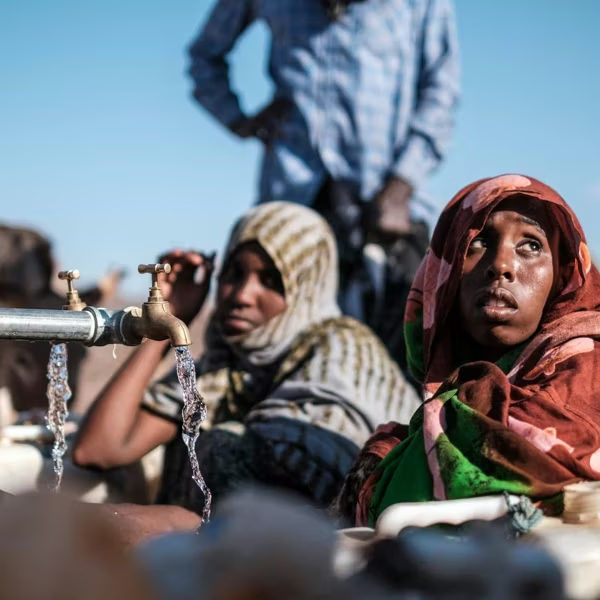Despite widespread public outcry and international condemnation, the city of Detroit on Tuesday resumed shutting off the water supply to thousands of city residents.
Ending the month long moratorium on shutoffs, Detroit Water and Sewerage Department (DWSD) public affairs specialist Gregory Eno confirmed to Common Dreams that the city turned off the water to roughly 400 households that are delinquent on their water bills and have not yet set up a payment plan. More shutoffs are expected.
According to the citizens group Detroit Water Brigade, the only thing that changed since shutoffs began in March is that the city has lowered the required down payment water bills from 30% to 10%. "The water is still too expensive for Detroit," they said. Detroit is one of the poorest cities in the United States with over 38% of the population living below the poverty line, according to Census Bureau statistics.
Members of the Detroit Water Brigade are calling on the city to halt the shutoffs altogether and consider alternatives for helping people pay their bills, arguing that restricting access to water for the city's poorest residents is "doing nothing more than hurting people," DWB volunteer DeMeeko Williams told a local CBS affiliate.
"Today it is 90 degrees in the city of Detroit," Williams continued. "Elderly people need water, children need water to hydrate themselves--to stay cool."
While the city says that the updated payment plan is working--pointing to the 15,000 households that have signed up for plans since shutoffs began--rights groups argue that the city's policy of shutting off water is a violation of human rights.
Over the weekend, residents and civil rights attorneys filed papers asking the district court to block DWSD from terminating water service to any occupied residence, and to restore service to occupied residences without water.
"More than 17,000 homes have had their water cut off and water bills in Detroit are among the highest in the country and unaffordable to many Detroit residents," said Kary Moss, ACLU of Michigan executive director. "The rush to resume shut offs when there are serious questions about the affordability plan, accuracy of bills, and issues with the water department's ability to process disputes, means that the City of Detroit should get its house in order before turning off anyone else's water."
"Taking tap water away from people who cannot afford it is not only a public health emergency but also a blatant human rights violation," said Maude Barlow, national chairwoman of the public advocacy group Council of Canadians, in a recent press statement. "We cannot stand by while countries abdicate their responsibility to protect our most vulnerable populations."
On August 15, a coalition of over fifty social justice groups including the Council of Canadians sent a letter to President Obama and Health and Human Services Secretary Sylvia Burwell to declare the ongoing water crisis a public health emergency.
As the shutoffs resumed, Justin Wedes, an organizer with the Detroit Water Brigade, wrote:



